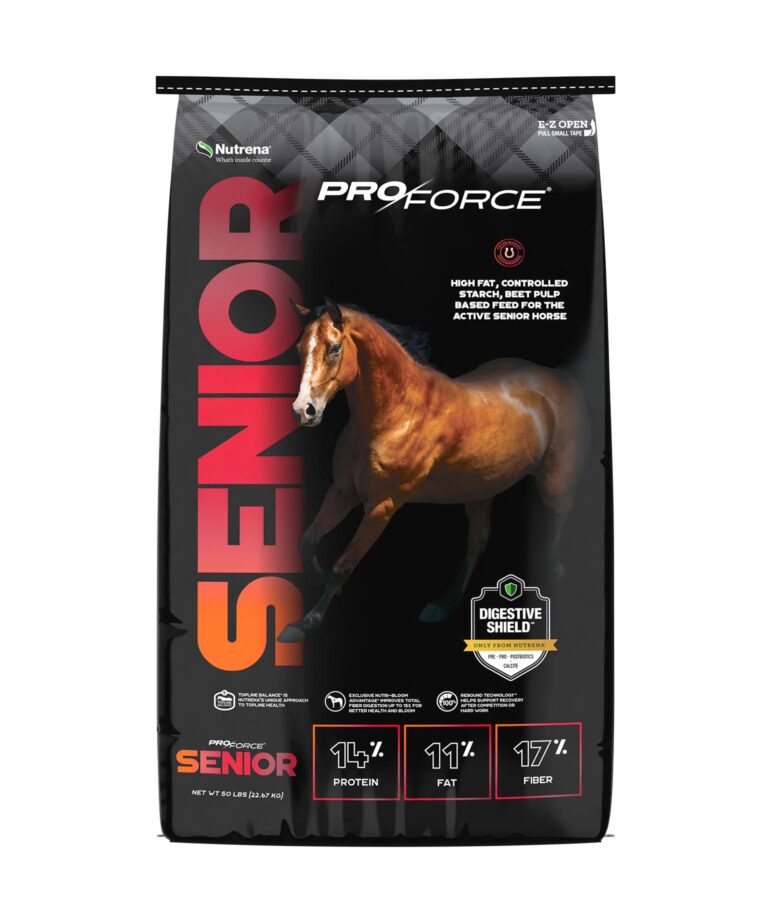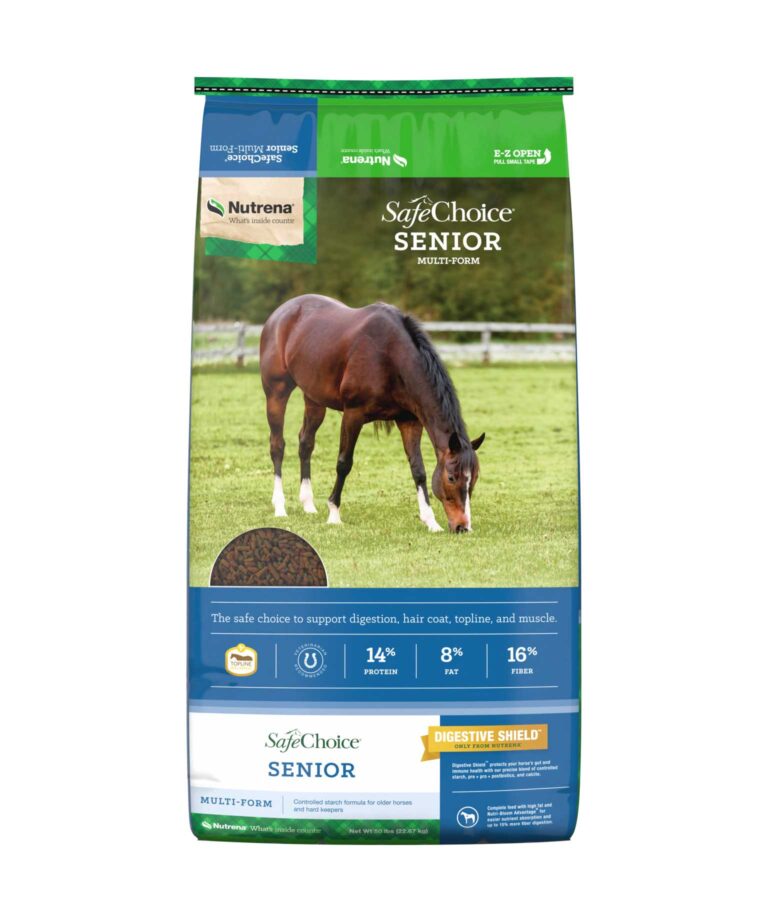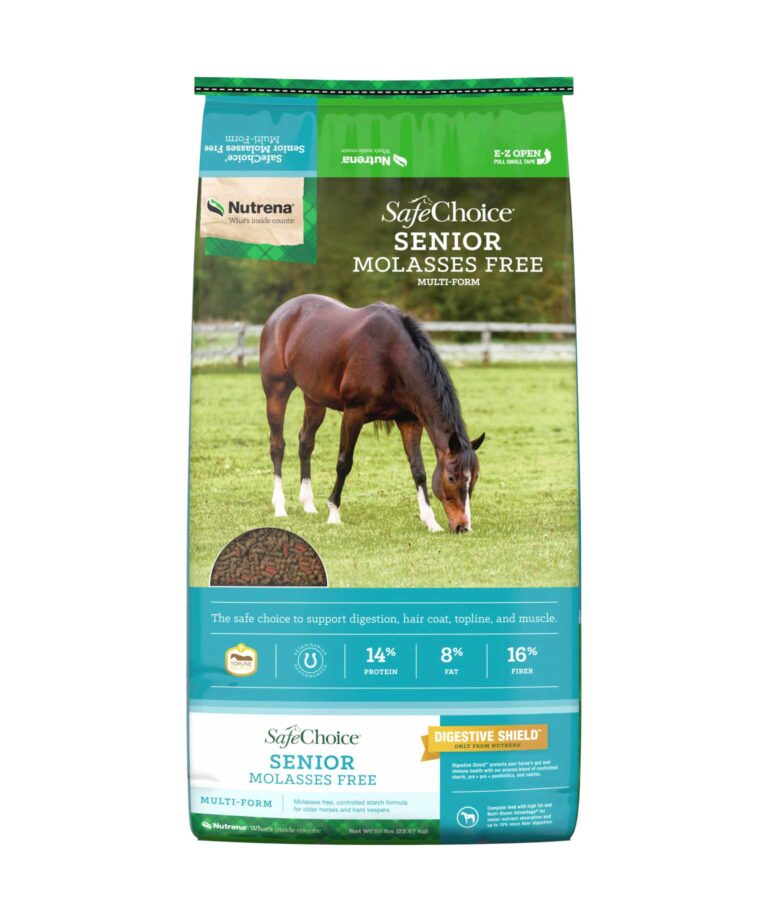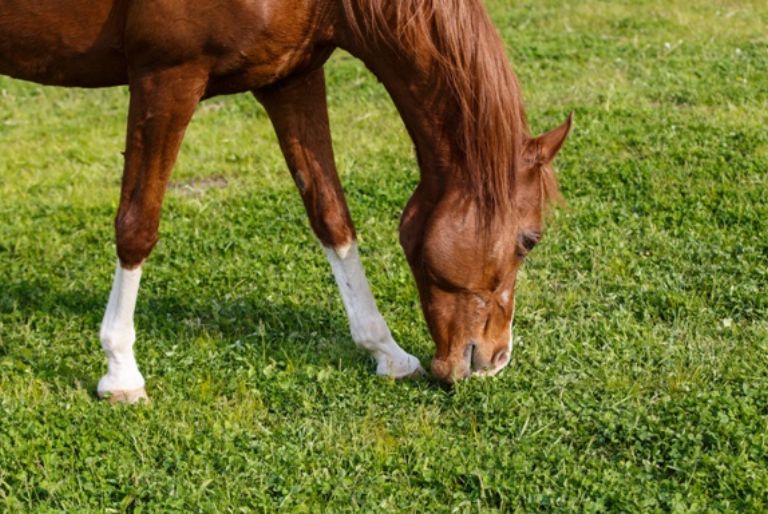Senior Horse Care Tips
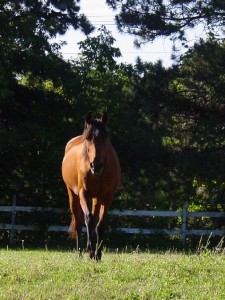
These days, horses are living longer, more productive lives than ever before. Thanks to advances in care, medicine, nutrition and veterinary practices, it’s not unusual to find a horse active into their thirties. But with more active years comes the need to provide accommodations which meet the special needs of the aging equine.
Turn-out and Exercise
Moving is a key factor in keeping your senior comfortable. Not only does moving about help with preserving muscle mass, motion also aids in digestion, reducing inflammation and increasing circulation. Daily turnout is a great way to provide this opportunity, as is regular exercise. Some ideas to exercise include light schooling, trail rides, driving or hand walking. Whether in a pasture or dry lot, daily turnout and frequent exercise of your senior horse will go a long way in providing a happy, healthy retirement. Plus it’s more time to spend with your aging friend.
Dentition
As horses age, their teeth change due to wear. Hopefully your senior horse has had the advantage of regular dental care in their earlier years, setting them up for success later in life. Regular dental checks and floats not only help to maintain good dental health, it also provides your senior with the best chance at chewing and digesting their feed and forage.
Forage and alternative options
With the change in teeth comes some accommodation to forage. Though aged, the equine senior still requires fiber as the main source of energy. Changes in dental efficacy as well as digestive system changes means the importance of good quality fiber is even higher. If high quality hay (more leafy, less stems) is not readily available, hay cubes are a good alternate source of easy to chew fiber. If needed, hay cubes can be soaked, providing an easy to chew fiber source.
Feed and Mashes
Changes in the digestive efficiency of the senior horses requires some specific nutritional needs. As the digestive system ages, the ability to digest and absorb nutrients is more of a challenge than in earlier years. In addition, nutrients are needed in different ratios to support the aging body. For example, higher levels of quality amino acids are required to maintenance muscle mass in the senior horse. Feeds that are specially formulated for senior horses provide these higher levels of nutrients in the proper ratio. Many varieties of senior feeds are considered ‘complete’, in that they contain higher levels of fiber, providing an alternative to forage, thereby making it easier for the senior horse to get the nutrients needed.
Blanketing
You may notice a difference in your horse’s ability to stay warm during cold or wet weather. Blanketing may be needed to help keep your senior horse warm during inclement weather. Not only does blanketing help with warmth, your senior horse isn’t spending valuable calories trying to stay warm, burning off energy and their weight. Blanketing in extreme cold or dampness may help your horse in maintaining a desired body condition.
Senior horse care may require some extra steps and more attention to details, but with the right adjustments, your senior can enjoy productive, happy and healthy golden years.

